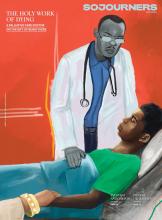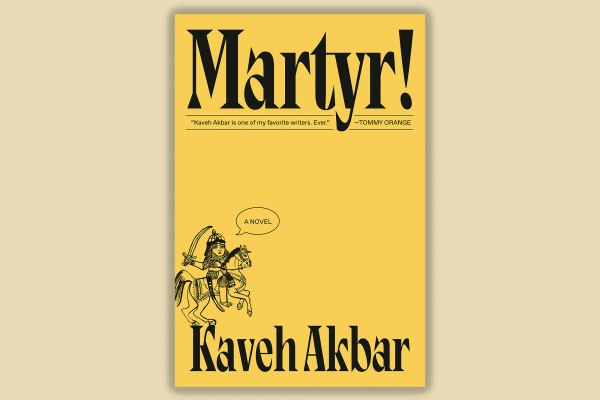MARTYRS HAVE IT easy, thinks Cyrus Shams, the 20-something protagonist of Kaveh Akbar’s debut novel. “Why should the Prophet Muhammad get a whole visit from an archangel? Why should Saul get to see the literal light of heaven on the road to Damascus?” At least they had clarity and purpose, Cyrus reasons.
In Akbar’s Martyr!, Cyrus, a first-generation Iranian immigrant, is an aspiring poet and martyr. His problem, he thinks, is that he doesn’t know what to die for.
Cyrus’ mother Roya was killed when she was a passenger on a jet that was shot down by a U.S. warship (inspired by the real-life downing of Iran Air Flight 655). Her death leaves a gaping wound in the Shams family: Cyrus is haunted by survivor guilt and his father self-medicates with alcohol. Martyr! is in part a meditation on the inherited weight of history and grief.
This burden seems particularly true for immigrants in the U.S. — or anyone who carries the weight of multiple identities. Sociologist and activist W.E.B. Du Bois wrote about the “double consciousness” of Black Americans, who have historically carried within themselves at minimum two narratives: the American dream as well as the nightmare.
Read the Full Article

